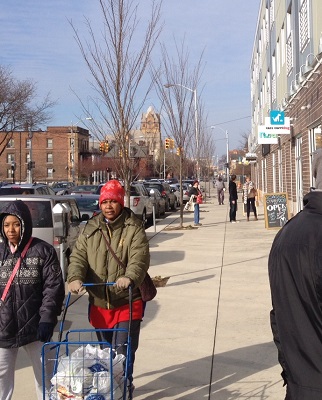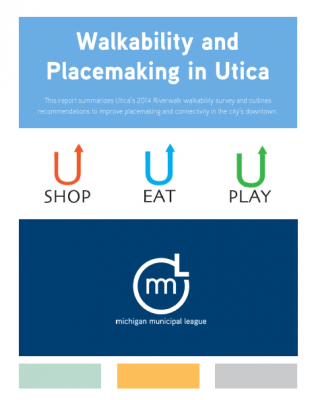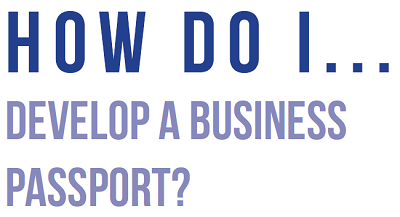
With so many people filling the streets for Small Business Saturday, Michigan’s small, mid-sized, and urban downtown leaders should be thinking more about promoting walkability, small businesses, and transit.
For example, Detroit has a ton of small, locally owned businesses but the city’s size and low walkability makes it difficult for shoppers to visit them on foot. To make Small Business Saturday easier, Pure Detroit launched a business passport to promote the 20+ participating businesses while D:hive and Detroit Synergy sponsored a free shuttle bus to help consumers get around.
These efforts, positive promotion, and Saturday’s sunshine all made Small Business Saturday a great success in Detroit: Patrons packed local businesses and filled the streets of the downtown Woodward corridor.
Create a Small Business Passport for Any Occasion
Simple tactics, like a passport and shuttle bus, can benefit local shopping any time of the year. This summer, the League worked with the city of Utica to promote walkability and small business shopping during their annual Riverwalk Festival.

Utica also used the passport to collect information from patrons as they walked through downtown. Participants could fill out a four-question survey asking about comfort, safety, and aesthetics of the walk to be entered in a second raffle drawing.
The League and New Solutions Group used information from the event to write a report analyzing the event and making specific recommendations to improve downtown walkability. Even small, low-cost initiatives like creative wayfinding, art, and simple landscaping improvements can improve walkability and benefit local businesses in Utica and communities across the state.

Any time of year, but especially around the holidays, communities should be thinking about ways to improve walkability and support small businesses in downtowns of every size. Creating interesting, welcoming, and fun downtown areas will help Michigan communities thrive.
Additional Reading on Entrepreneurship, Small Businesses & Walkability
- The Brookings Institute – The Rise of Innovation Districts: A New Geography of Innovation in America
- Future Structure – Walkable Urbanism on the Rise
- National League of Cities – Supporting Entrepreneurs and Small Businesses: A Tool Kit for Local Leaders
- University of Michigan Dearborn – eCities 2013 Year-End Report: Examining Factors the Foster Entrepreneurship and Encourage Economic Development